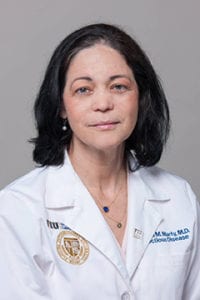It’s official, this year’s flu season is a bad one, and it’s not over. But there’s still time for you to protect yourself.
Already 30 children have died from the flu this season, two of them in Florida. Neither had been vaccinated. In fact, according to the Centers for Disease Control and Prevention (CDC), about 85 percent of the children who have died from the flu had not been vaccinated, prompting CDC Director Dr. Brenda Fitzgerald to urge Americans to get flu shots.
“My message is, if you haven’t gotten a vaccine, please get a vaccine. Also, please get your children vaccinated,” Fitzgerald said.
The most prevalent flu virus this season, a strain known as A(H3N2), is a nasty bug. “There are three main types of influenza viruses, A, B and C. Of these, A is the worst type,” said
Dr. Aileen Marty, an infectious disease specialist at Herbert Wertheim College of Medicine. “It is the deadliest and the most likely to lead to hospitalizations and complications.”

“Even though influenza vaccine effectiveness varies, and we can’t guarantee 100 percent that you won’t get the flu, influenza vaccination remains the most effective method to prevent influenza and its complications,” said Marty, director of the FIU Health Travel Medicine Program and Vaccine Clinic.
The CDC estimates this year’s flu vaccine is about 30 percent effective against the predominant H3 viruses. Health officials admit “this leaves a lot to be desired”, but studies show even with influenza vaccine effectiveness in the range of 30 to 60 percent, vaccination prevents millions of infections and medical visits and tens of thousands of hospitalizations each year. And in case you still get the flu despite having had a flu shot, flu vaccination may help make your illness milder.
Marty warns that contrary to what many people think, influenza is not just a little worse than the common cold. “The flu is serious. It can kill you,“ she said. “And 30-percent protection is better than no protection. Get a flu shot.”
Flu shots are available on campus:
FIU Health for faculty, staff and the general public. Call 305-348-DOCS (305-348-3627).
Student Health Services for students. Call 305-348-2401 (MMC) or 305-919-5620 (BBC).







Comments are closed.